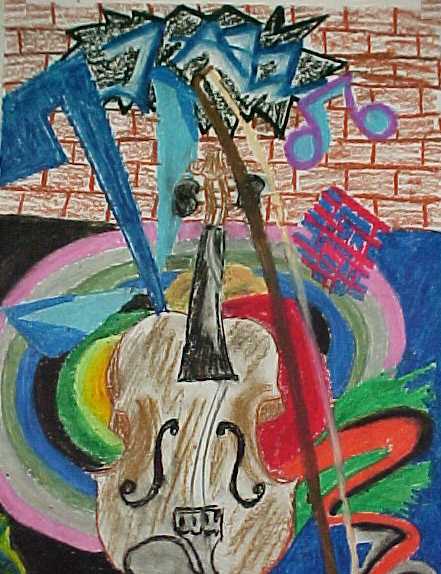The Career Profile Project
Twenty Skills Used in School and Careers
 Artistic ability:
Artistic ability:
Skills in creating and communicating using art, music, crafts, design, decorating, desktop publishing or other media. Artistic skills can be used formally or informally in a variety of jobs.
Athletic/physical ability:
Coordination, physical strength, and physical skills, which can be applied to sports, dance, coaching or to physical work such as building, handling materials, or working outdoors.
Bilingual skills:
Ability to speak and write in more than one language. Bilingual skills include the ability to translate for others and the ability to communicate directly with others in more than one language.
 Creative thinking:
Creative thinking:
Ability to come up with orginal ideas, find new ways to solve problems, and put thoughts together in new and different ways. Creativity is important in everyday business planning and problem-solving as well as in artistic and creative careers.
Computer technology:
Computer literacy, including the ability to learn new software and computer languages, manage files on a computer, and use computers to do research, manage data, and produce a variety of products.
Coordination / Using hands, tools and equipment:
This skill area includes the ability to work with one's hands, tools, and equipment to produce or repair products or structures. These skills are used in carpentey, cooking, computer repair and other trades and professions.
Interpersonal skills:
Ability to work well with supervisors, customers, coworkers, and others. Interpersonal skills include a variety of personal and professional skills, including the ability to work in groups, exchange ideas, and resolve conflicts.
Investigative/fact-finding skills:
Ability to gather information to solve a problem, conduct a research project, or make a desicion. Investigative skills are used in a wide variety of settings, including business, law, medecine, and education.
Leading and supervising:
The ability to direct the work of others, including providing leadership, coaching others, setting expectations, organizing work, and offering feedback.
Logical thinking:
The ability to analyze information and use it to make well-formed desicions. Logical thinking is an important ingredient in problem-solving. It is also important in technical work, since computers rely on following a set of logical instructions.
 Mathematical skills:
Mathematical skills:
The ability to use numbers or mathematical ideas. Mathematical skills include the skills used in handling money, along with skills like measuring, estimating, budgeting, statistics, and more. The ability to use spreadsheets on a computer is an important math skill.
Mechanical skills:
The ability to understand the way machines and equipment work; the ability to assemble, use repair, or design machines and equipment.
Sales/negotation skills:
The ability to work with people to lead them to a desired decision. This skill set includes good listening and communication skills, along with logical thinking skills.
 Scientific/experimental skills:
Scientific/experimental skills:
The ability to learn through research and experimenting. These skills can be used in on-the-job problem solving, in learning about and programming computers, and in research in health care, social services, and science.
Service/helping skills:
This category includes the desire to work in a helping role, the ability to work comfortably with different ages and types of people, and knowledge of the most positive approaches to helping others.
Teaching/instructional skills:
The ability to teach others new skills, whether in a formal classroom or training program or though informal on-the-job instruction.
Verbal communication skills:
This skill set includes the ability to listen effectively, ask questions, present ideas and suggestion, and convey professionalism through one's words, tone of voice, and body language.
Understanding nature, plants and animals:
This skill set includes the ability to grow and care for plants, care for and understand animals, and the ability to understand and classify information about the environment.
 Understanding yourself:
Understanding yourself:
The ability understand one's own thoughts and feelings. These skills can be helpful in managing one's own career, and are also important in people-focused careers, such as writing, religious work, or social work.
Writing skills:
Workplace writing skills include the ability to communicate with others through business letters or reports and the ability to keep notes related to one's work. The ability to use word processing is also important.
The Career Profile Interview
The Career Profile Inteview asks people to rate the importance of these skills in their work. How did people in each career area rate these skills?
View Interview Summaries.
ARTWORK on this page by students from the Boston Community Leadership Academy. About the artists.



